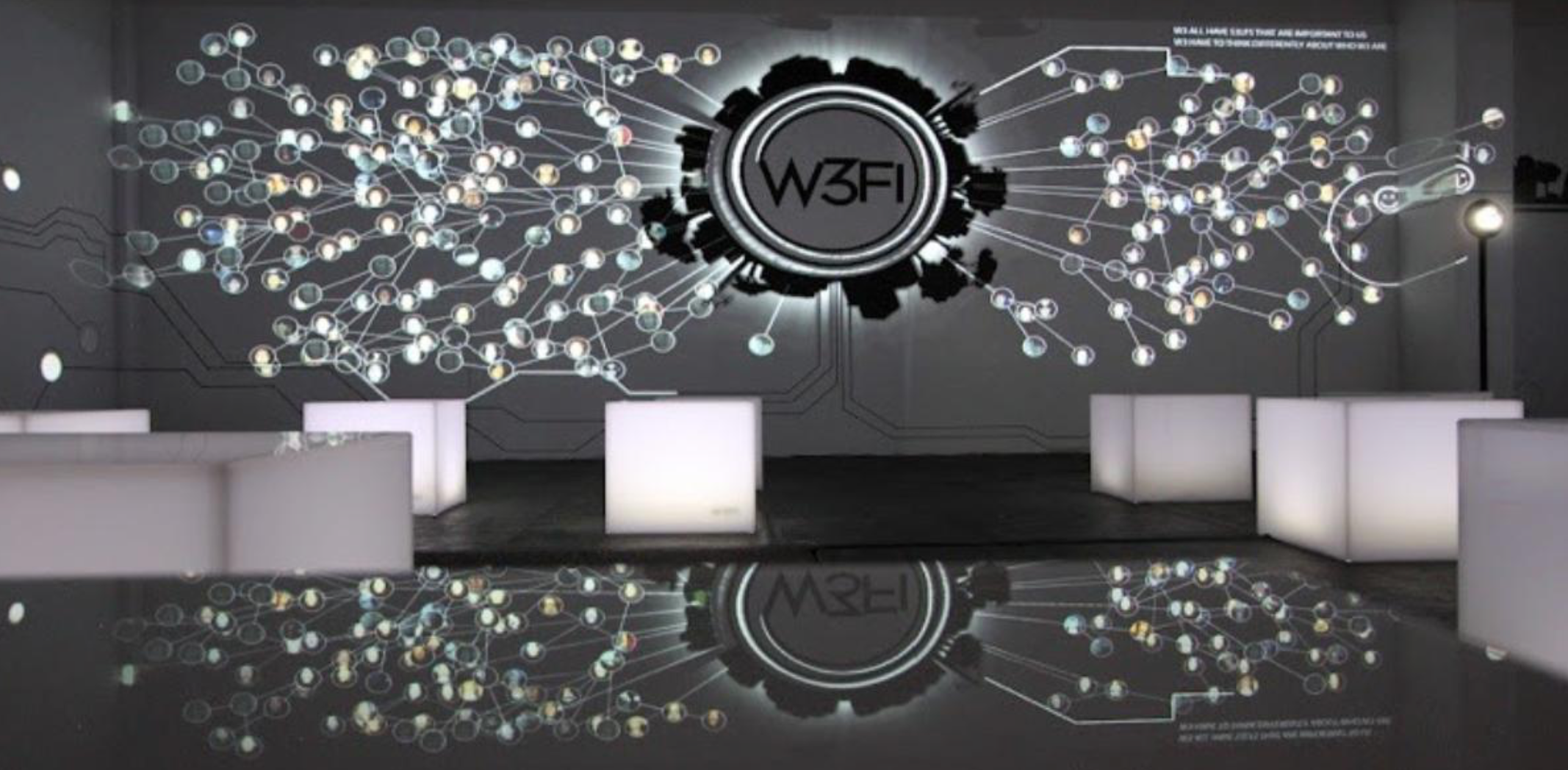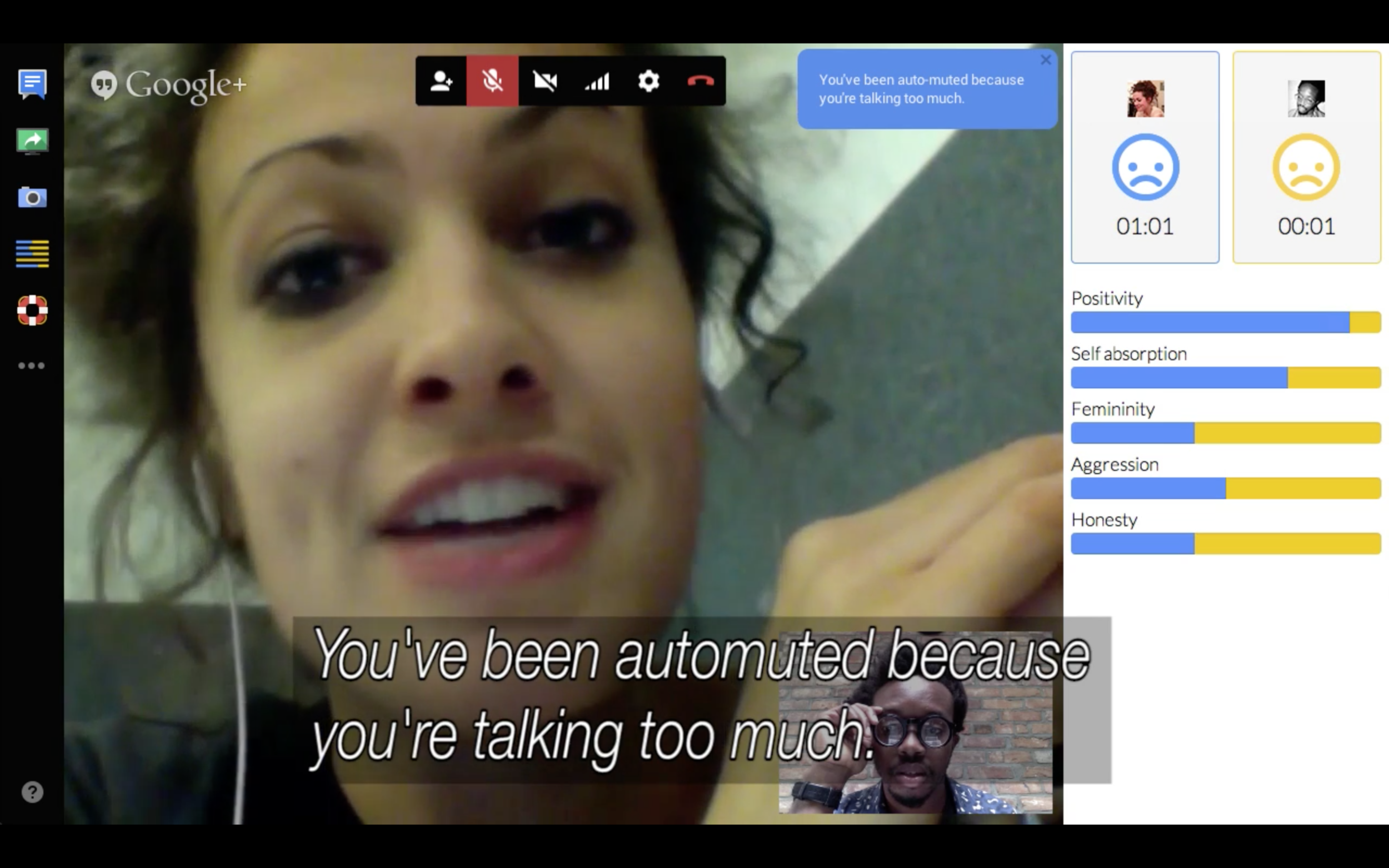pplkpr
Kyle McDonald and Lauren McCarthy, pplkpr (2015)
Video courtesy of artists
pplkpr is an art project created by Kyle McDonald and Lauren McCarthy in 2015. As an app paired with a heart rate detecting smartwatch, it also uses GPS and information entered by the user about who user is spending time with. Based on research on heart rate variability, pplkpr can detect which emotion is being felt by using complex algorithms that analyze subtle changes in heart rate. The app records the emotions being felt around specific people, and looks for patterns in this information. It is then able to give assistance to the user pertaining which relationships should be maintained and which should be deleted, by willfully blocking and messaging friends, acting as a virtual manager for users’ relationships. In comparison to how humans make decisions about which friends to keep, pplkpr uses simple information to determine which relationships are “better” for the user.
Surveillance and filtering based on user information with the purpose of creating a more personal browsing experience by online companies like Facebook are often controversial. However, pplkpr encourages the question of whether those types of surveillance and filtering actually create an inauthentic representation of the user. pplkpr also explores the boundaries of whether an online presence is a part of an identity: as quoted by the creators, “When you use pplkpr, it tells you things like “X makes me feel most stressed,” emphasizing that the app is not a separate entity or companion, but an extension of your self.” Many users have reported that pplkpr made them more observant of their emotions, which is a refreshingly positive outlook on quantification, especially compared to the mysterious way Facebook feeds aren’t organized completely by date.
“Framed as art, pplkpr is granted the buffer of being a provocation or even satire, but it’s not outlandish to consider a reality where people will earnestly look to algorithms to make sense of how they feel. Implemented responsibly, that could be a positive thing—an objective set of eyes can help us see that a relationship is unhealthy. But it could go both ways. A technology like pplkpr has the ability to make us more caring, more emotionally attuned versions of ourselves. But it also has the potential to algorithmically nullify the thing that makes humans actually human: Our sometimes messy, occasionally exciting, often confusing relationships with each other.” Stinson, Liz (2015, January 26). Wired. Having a Hard Time Being a Human? This App Manages Friendships for You
pplkpr is politically a very powerful piece, because it has the potential to create a new model of quantification based on openness and improving the user experience. It could also have very large benefits in terms of helping people become more mindful in their experiences, and potentially helping individuals realize when a relationship is abusive. pplkpr can act as a reminder to act more authentically. Of course, using pplkpr in professional settings is unrealistic. However, because it can “see” human emotion in a way humans are unable to do without assistance, the decisions it makes for the user’s relationships could be valid. If a human were to decide which relationships they pursued based solely on their emotions when spending time with that person, those decisions would likely mimic how pplkpr would manage their social life.
Whether human behavior becomes inauthentic once it has been processed by a computer is undecided, but brains have evolved to include complex thinking when making decisions, and it can be assumed that only using emotions to make decisions is primitive. Therefore, while creating insight towards personal emotions, humans usually think about much more besides “feeling stressed” when considering the deletion of a contact. pplkpr is a unique perspective on human behaviors, but it is not evolved enough to allow full control of one’s phone and personal relationships. This part of the piece is particularly intriguing, because it creates a sort of uncanny valley in the place where users allow the app to try to make more authentic decisions than a human could.
One similar piece of art is The Data Drive, a website created by Adrian Chen, Sam Lavigne, Alix Rule, and Daniel Kolitz in 2015. The Data Drive shows a paper collage-like Facebook, with obviously obnoxious advertisements and articles critiquing Facebook. It comments on the willingness of users to give up personal information in order to feel more connected and build what they perceive to be better relationships. Similar to pplkpr, it makes the user uncomfortable using the technology to make friends, when "relationships" seem like something that should be innately human. pplkpr has evolved past The Data Drive, in that it goes so far as to overtly tell the user what to do.
us+, created by the same team–Kyle McDonald and Lauren McCarthy, is a Google Hangouts extension that gives advice to the user from interpretations of things like positivity and self absorption. It is based on linguistic inquiry word count, which helps determine the quantity of positive or negative expressions, various topics and types of words, etc., to find out what the topic is and what the person’s emotions are like. us+ is very similar to pplkpr in that it tries to improve human connection through technology. us+ solely focuses on conversation in a variety of settings, whereas pplkpr is only viable in the user’s personal life. As an artistic piece, it also pushes the boundary of using technology as a substitute of one’s own humanity.
Kyle McDonald and Lauren McCarthy, us+ (2013)
Video courtesy of artists
Additional Media
The Saturday Paper (Australia): https://www.thesaturdaypaper.com.au/2015/04/11/pplkpr-app-adds-friends-the-quantified-self/14286744001722
Engadget: http://www.engadget.com/2015/01/20/peoplekeeper-app-launch/
TechCrunch: http://techcrunch.com/2015/01/19/pplkpr/
Creative Applications Network: http://www.creativeapplications.net/i-os/pplkpr-app-to-analyze-manage-and-optimize-your-social-life/
Animal (New York): http://animalnewyork.com/2015/death-tinder-artists-build-dating-app-monitors-irl-interaction-matches/






